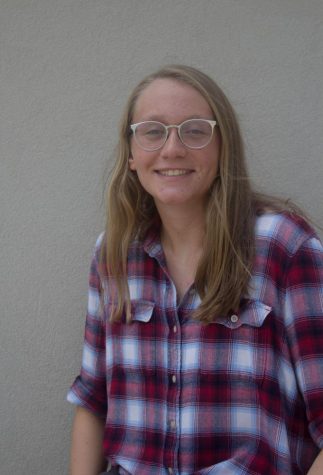
This contains minimal spoilers. Read with caution.
On the night of July 30th, 2016, muggles around the world were clad in Hogwarts robes, feverishly cramming into bookstores awaiting the midnight release of Harry Potter and the Cursed Child, the first new Harry Potter book to be released in nine years.
News of a brand-new Harry Potter story made me ecstatic. You see, I love the Harry Potter series more than I love most humans on this Earth. Nearly every time I get seriously sick, I re-read the whole series. It’s my version of comfort food. Harry Potter is pretty much the book equivalent of mac n’ cheese.
Needless to say, most of the world (including myself) had huge expectations for Harry Potter and the Cursed Child. Did it live up to them? Somewhat.
The first things that I noticed upon opening Cursed Child were probably my biggest disappointments about the book. Cursed Child was written as a play that opened recently on London’s West End. The script of that play is the Harry Potter Cursed Child that can be purchased in your local bookstore.
As a rule, I prefer either reading a story in book form or watching a play to reading a script. In my mind, reading the script of the play leaves out both the best parts of both books and plays: it cuts out the narrative and descriptions in a book, and it removes the acting, sets, and effects of a play. This was especially problematic in Cursed Child’s case, as J.K. Rowling’s descriptions of the wizarding world are brilliant, and critics write that the acting and effects of the play are superb.
Especially in comparison to Rowling’s books, the writing in Cursed Child fell a bit flat, likely because it was a play script and that the script was not written by J.K. Rowling.
Cursed Child was publicized as “the eighth story, nine years later.” That led me to believe that it was going to basically be the eighth Harry Potter book. In a way, it was, but it was different from the original series in style, plot, characters, and author. Experiencing the Wizarding world without JK Rowling at the helm felt a little strange and somewhat inauthentic. The script says that it is based on an “original story by J.K. Rowling.” Why not publish that story instead?
Though Cursed Child is not the eighth Harry Potter book, I’m learning to appreciate it as a masterpiece in its own right. Ironically, the best parts of Cursed Child were the parts that were original and not borrowed from any previous books.
Take the characters. It is always strange meeting characters again in a new story after they’ve aged, as was the case with grown-up Harry and his friends in Cursed Child. Maybe it’s that I was so used to reading about Harry and Company from Rowling’s point of view, but their versions in Cursed Child didn’t quite ring true.
However, the new characters, such as Albus Potter and Scorpius Malfoy, were exquisitely created. I especially loved how both were simultaneously so different and so similar to their famous fathers. They each had unique, developed, and nuanced personalities, and their friendship was my favorite part of the book. It ran so deep and was only strengthened by hardship, which reminded me of the original Golden Trio in the best way.
Similarly, some of the elements of the plot were taken directly from the original series. Cursed Child revisits some key scenes from the original series, such as the Triwizard Tournament and the night Harry became the Boy Who Lived. Each time this happened, it felt a bit disingenuous to me.
However, the best part about Cursed Child’s plot was the way that it played with time. Time travel, only briefly touched upon in the original series, drove the plot of Cursed Child, and in the best way. The way that the authors explored the relationship between past and future, both on the biggest scale and also in single characters’ lives, was very powerful. The script also demonstrated very well how one small event can impact the future in huge, unforeseen ways.
Also, on a side note, I absolutely loved the scene where Harry transfigured himself into Voldemort. It gave me goosebumps.
Maybe my anticipation regarding Cursed Child as “the new Harry Potter book” led directly to my disappointment upon first reading it. I was so sad to learn that the book wasn’t a direct extension of the original series that I was blinded to the fact that its original bits are what truly makes the story great. No, Cursed Child is not the next book in the Harry Potter series, but it is definitely worth a read in its own right. If you read Cursed Child, make sure appreciate it for what it is, not what it isn’t.



